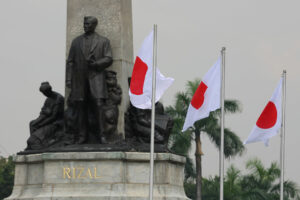Remittances seen to support recovery

THE Philippine central bank expects remittances from overseas Filipino workers (OFWs) to continue supporting the economy’s recovery from the pandemic, and ease the burden on public finances.
“Remittances will continue to be a significant force in the Philippine economy over the medium term. For one, rising incomes in host countries will continue to serve as a magnet to those whose skills are in demand overseas,” Bangko Sentral ng Pilipinas (BSP) officials said in a discussion paper titled “Remittances from Overseas Filipinos in the Time of COVID-19: Spillovers and Policy Imperatives.”
The paper was authored by BSP Deputy Governor Maria Almasara Cyd N. Tuaño-Amador; Director for Supervisory Policy Research Department Veronica B. Bayangos, and bank officers Marie Edelweiss G. Romarate and Carl Francis D. Maliwat.
The BSP projects cash remittances to grow 4% this year, after the 5.1% rise to a record $31.418 billion in 2021.
The study cited the increased global demand for overseas workers, particularly medical workers, this year as more economies reopen. More countries have also eased border and travel restrictions as the number of coronavirus disease 2019 (COVID-19) cases fall worldwide.
“More employment opportunities could bode well for OFW job prospects and remittances, helping support the country’s economic recovery. This could also take off some of the burden on public finances, especially at a time when fiscal revenues have declined due to the slowdown in economic activity,” the BSP study said.
The BSP study said the crucial role of remittance “cannot be denied” as it provided foreign exchange and policy space needed to undertake the necessary macroeconomic policy adjustments and institute structural reforms during the pandemic.
In 2020, cash remittances to the Philippines dipped by an annual 0.8% to $29.903 billion. Although this was the first contraction in two decades, the fall was relatively small compared to the 20% decline in global remittances expected by the World Bank for that year.
The strength of remittance inflows despite the crisis reflects the willingness of Filipinos to continue sending money during a crisis that match what they send in normal times, the BSP study said.
“There is anecdotal evidence that overseas Filipinos’ risk-taking behavior is such that they find ways to augment their incomes by finding second jobs, working longer hours or switching occupations where employment is less uncertain,” it said.
However, the BSP study warned the uncertainty over the Russia-Ukraine war may cloud the outlook for remittances.
In case of a protracted Russia-Ukraine war, the BSP study said the impact on remittance inflows will likely deepen. It noted slower economic activities in Russia, Ukraine and Belarus would hurt jobs and income of OFWs, while their weaker currencies against the US dollars will reduce the nominal US dollar value of remittances.
“Importantly, the sanctions on the Russian banking system in the form of exclusion from the SWIFT network for fund transfers is likely to directly disrupt remittances through formal channels, which could lead to a partial shift to indirect and informal channels. Also, the sanctions can affect remittance flows indirectly if they lower employment and incomes for Filipino migrant workers in the Russian Federation,” it said.
Russia invaded Ukraine in late February, a move supported by its close ally, Belarus.
Combined cash remittances from these three economies stood at $2.4 million or around 0.01% of total inflows in 2021.
To optimize the use of remittances, the BSP study said policies should support the development of digital remittance channels and continue efforts to lower remittance costs. — L.W.T.Noble




